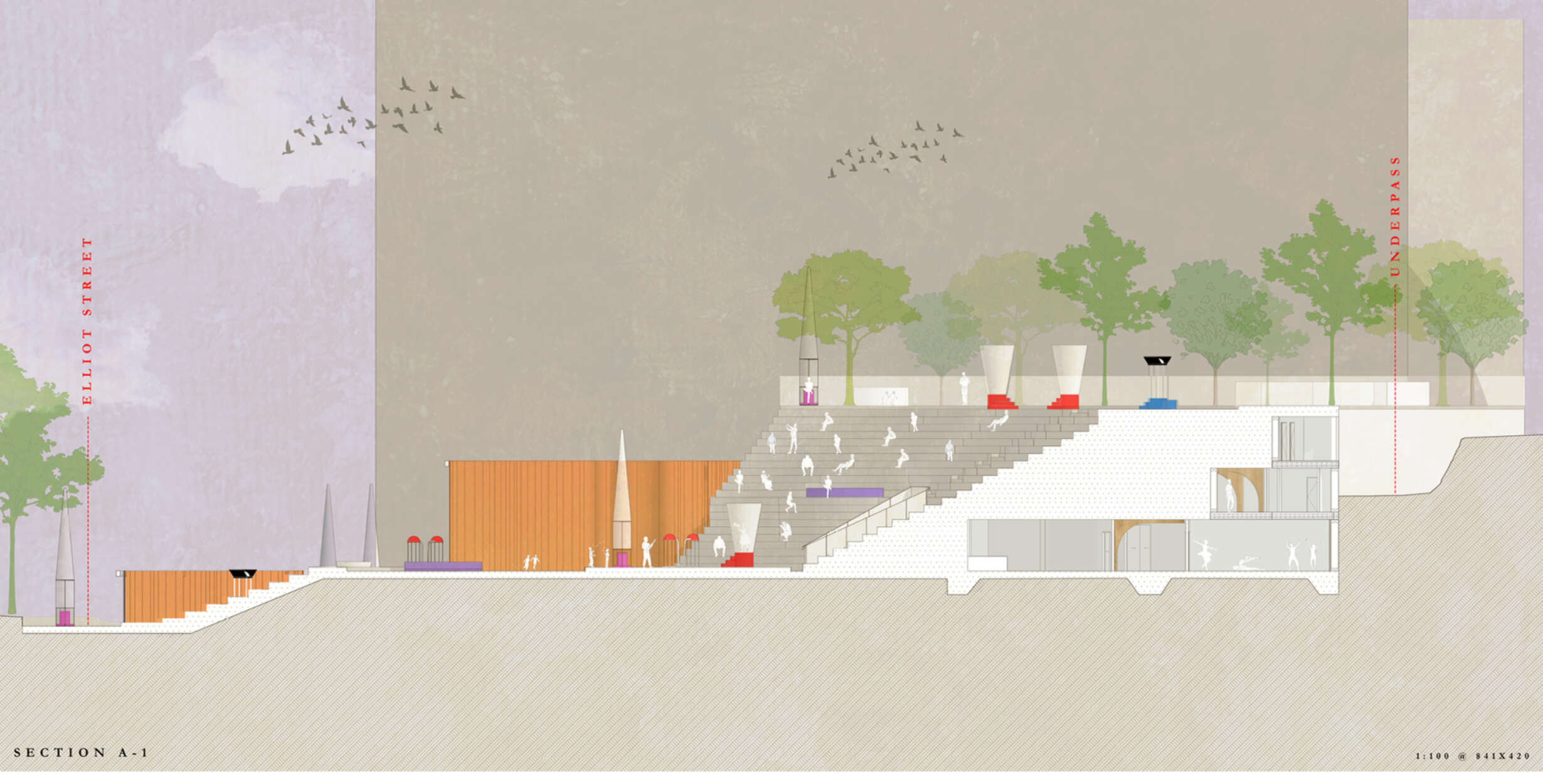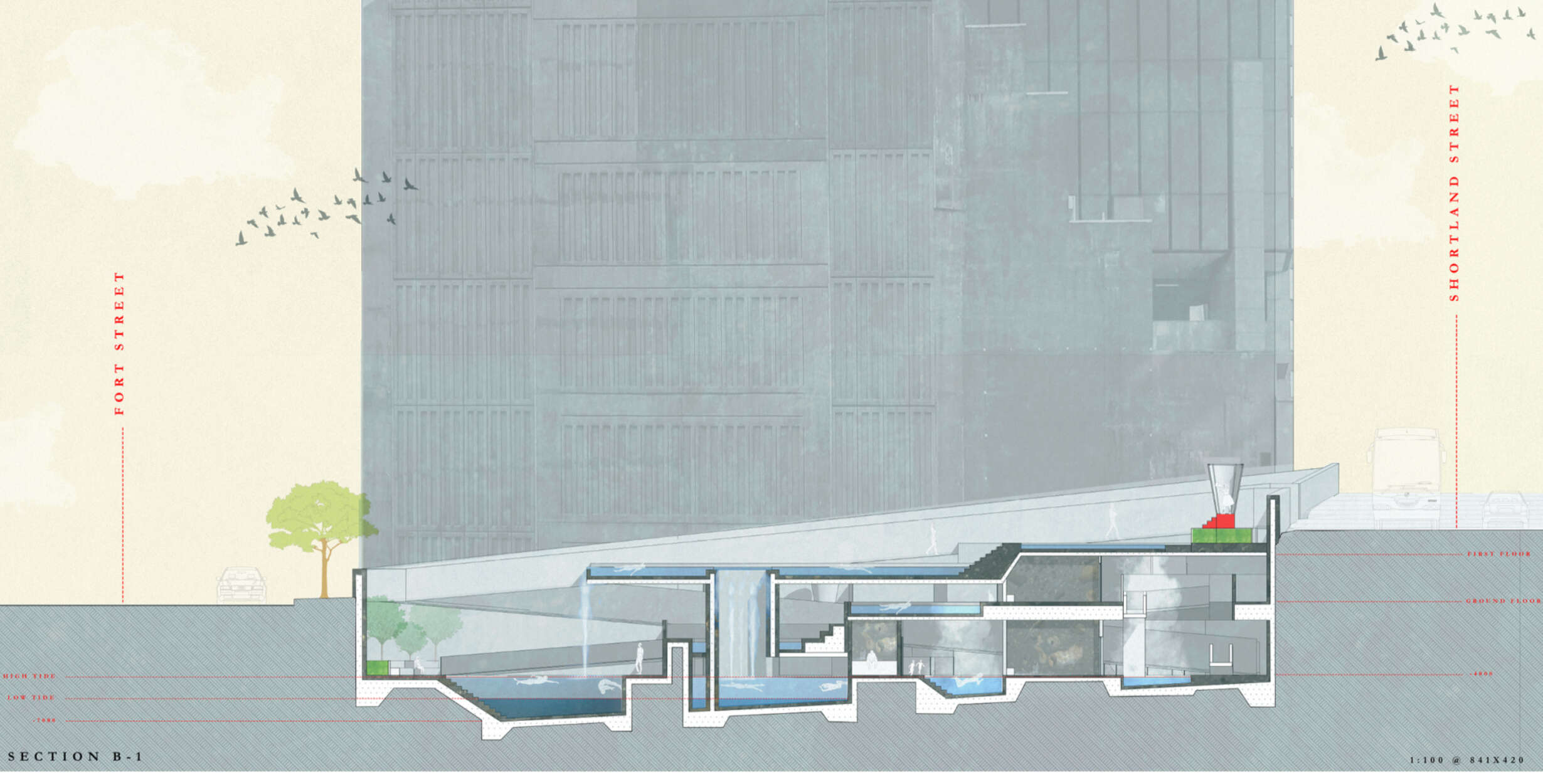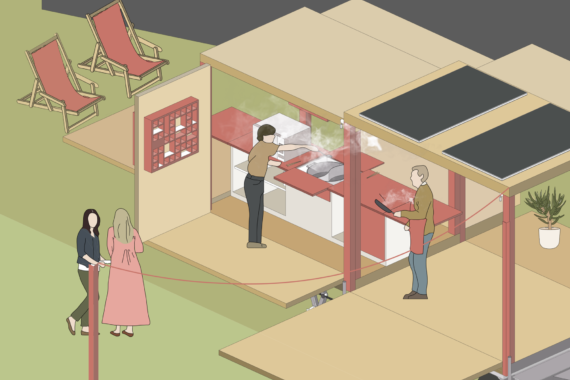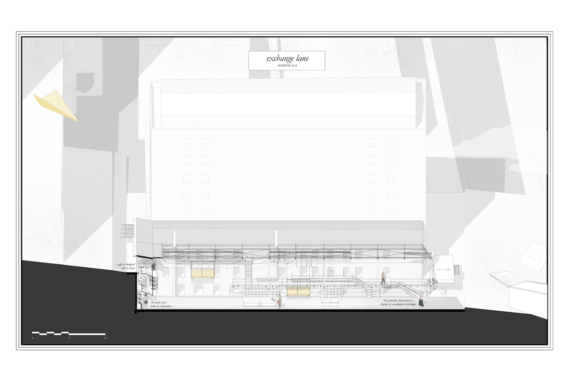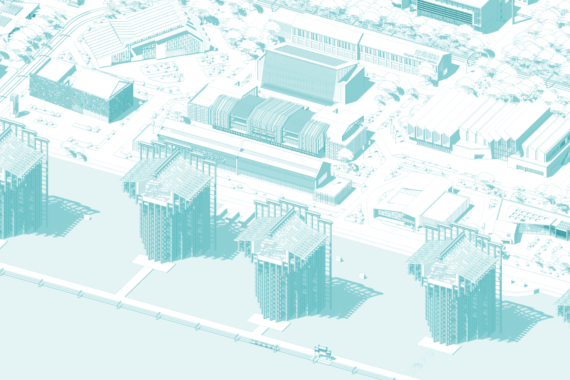The mental health care system in New Zealand is at a crisis point, and the condition of mental health is only heightened by Covid 19. New Zealand has one of the highest youth suicide rates in the world with a third of people having experienced mental distress.1 As the pandemic has swept through the country, support systems have become predominantly digitalised and increasingly hard to access.This is the premise for what I would consider a very necessary thesis.
The issues listed above call for simpler and more accessible mental health care. It is the position of this thesis that such care requires a shift to informal systems and therefore informal architecture. The reality, however, is that mental illness cannot be cured by architecture. Instead, this thesis will test architecture’s agency in creating and sustaining moments of joy.
The proposal is for a new form of mental health care, one of an urban scale within the public sphere of Auckland CBD. Informal moments and gathering spaces will take place within the everyday of the city. These interventions will be informed by the hidden routines, the secretive and intimate repetition which defines the everyday. Such moments of enjoyment are pockets within the urban fabric of a city, detached from ideas of time, context, social hierarchies or social norms. This is an architecture of different scales and temporality, designed not only for the extremes of mental illness but for the in-between. Therefore, it acknowledges and normalises the diversity and range of mental illnesses as well as human interactions. The proposal is a proactive approach to mental health, aimed at preventing the need for extreme intervention in the future.
- NZMHM. “Mental Health in Aotearoa.” Accessed Mar 19, 2022. https://www.hpa.org.nz/sites/d...











